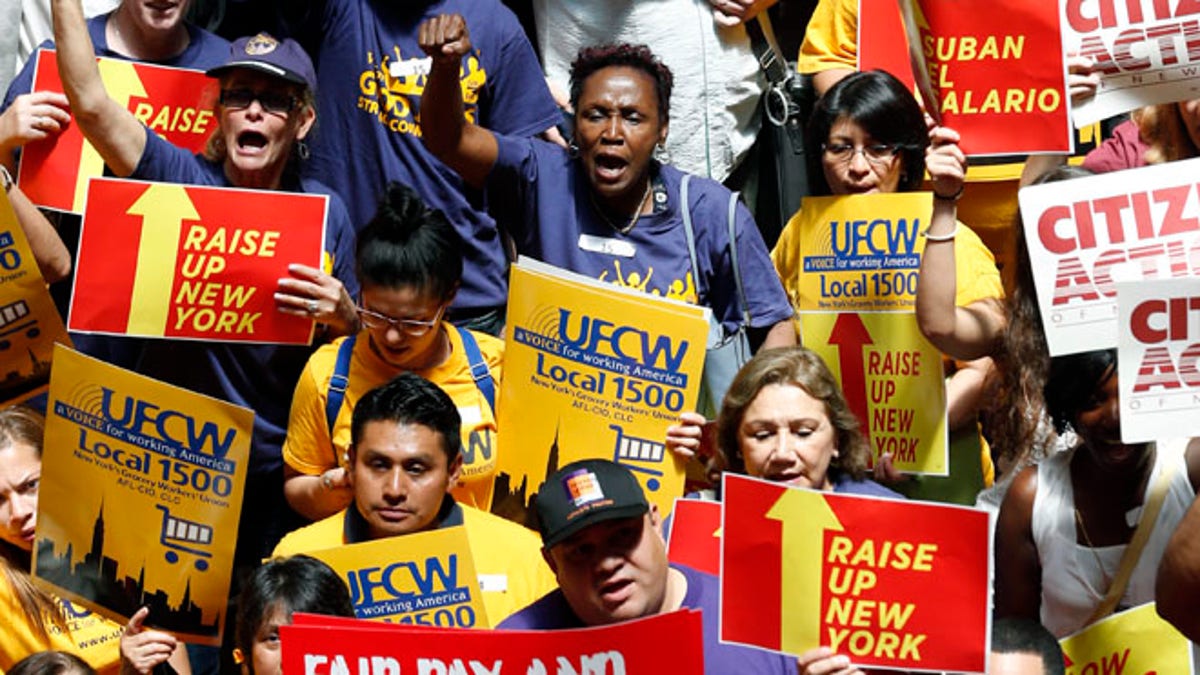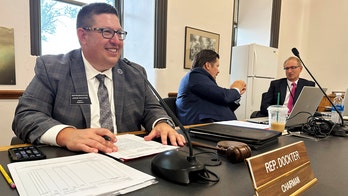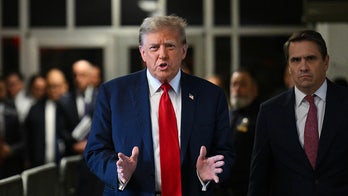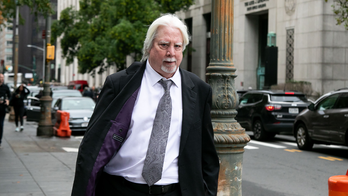
FILE: June 17, 2014: Protesters rally for an increase in the minimum wage on the Great Western Staircase at the capitol, in Albany, N.Y. (AP)
The minimum wage increased Thursday in 21 states means extra money for an estimated 3.1 million U.S. workers, while Congress and the White House continue to battle over whether to increase the federal wage.
Alaska, Arkansas, Connecticut, Florida, Nebraska, Ohio, Maryland, Massachusetts, Rhode Island and South Dakota are among the states that increased their minimum wage on the first day of 2015.
In Connecticut, the state minimum wage goes from $8.70 to $9.15. It is the first of several increases aimed at boosting the wage to $10.10 an hour by Jan. 1, 2017 in that state.
Connecticut was the first state in the country to pass legislation committing to a $10.10 an hour wage, which President Obama wants for the federal minimum wage.
"For the 125,000 Connecticut women who earn at or just above the minimum wage, this increase is critical," Lt. Gov. Nancy Wyman said.
New York increased its minimum wage on Wednesday, which means workers in 29 states and the District of Columbia will now receive an hourly wage above the federal minimum of $7.25, according to the National Conference of State Legislatures.
Alaska, Arkansas, Nebraska and South Dakota approved the increases through ballot measures in the November midterms.
The increases in 10 states -- Connecticut, Delaware, Hawaii, Maryland, Massachusetts, Minnesota, Rhode Island, Vermont and West Virginia -- were passed during 2014 legislative sessions, as was the District of Columbia’s.
In Massachusetts, the increase is from $8 to $9 an hour and is the first since 2008.
The increase was approved by the state legislature and Democratic Gov. Deval Patrick as part of a three-step process that will bring Massachusetts' minimum wage to a U.S.-leading $11 an hour by 2017.
In nine other states -- Arizona, Colorado, Florida, Missouri, Montana, New Jersey, Ohio, Oregon and Washington -- the increases as of New Year’s Day were the result of cost-of-living or index increases mandated in state laws.
The increases in the District, Delaware and Minnesota are scheduled to take effect this summer. And Pennsylvania Gov.-elect Tom Wolf also is pledging to increase his state’s minimum wage.
The effort to increase the minimum wage is part of a larger debate across the country about the divide between the poor and the wealthy.
U.S. businesses have generally been opposed to increases because they say the additional payroll costs could result in layoffs or increases in the costs of their goods or services.
Obama’s efforts to increase the federal wage to $10.10 an hour has stalled in Congress, and the possibility that such legislation will pass in 2015 appears unlikely now that Republicans control the House and Senate.
Roughly 75.9 million U.S. workers 16 and older in 2013 were paid an hourly rate.
About 3.3 million of them, or 4.3 percent of all hourly paid workers, earned wages at or below the federal minimum, according to a recent U.S. Bureau of Labor Statistics report.
The Associated Press contributed to this report.




